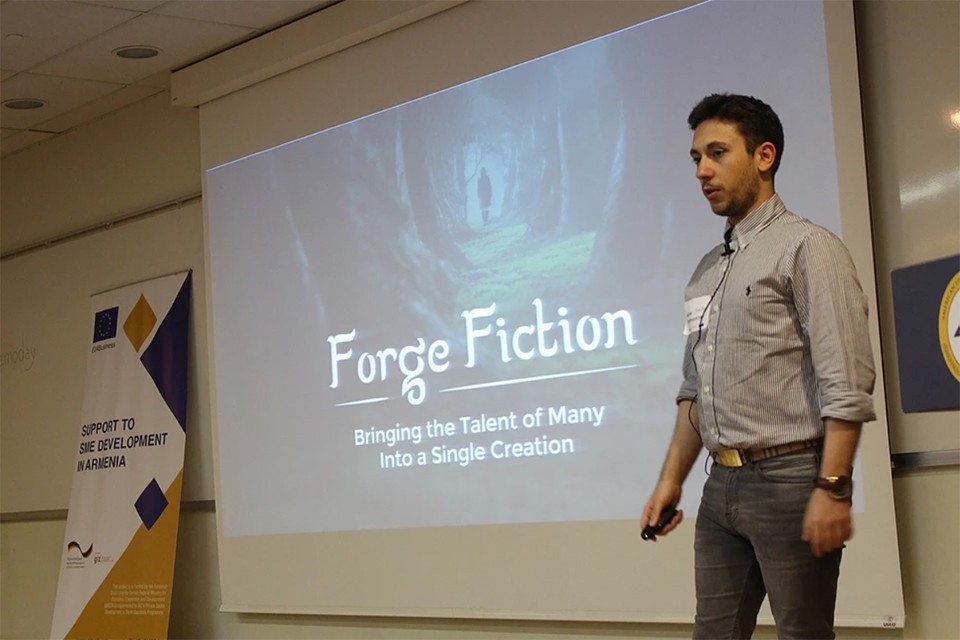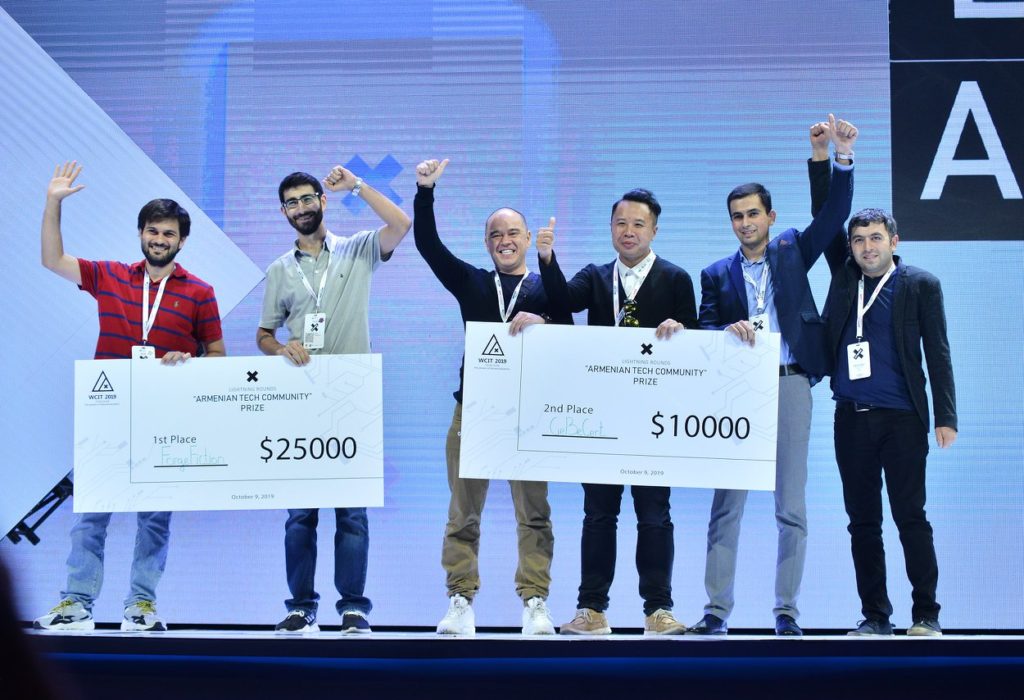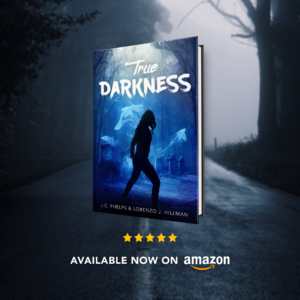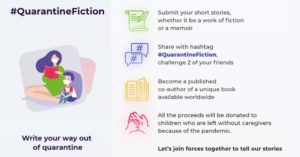YEREVAN – It doesn’t sound like an unusual story in the US. Four friends graduate college and come up with a great idea for a business. Their software platform takes off and becomes wildly successful internationally. In the case of ForgeFiction, what is unusual that this story is set in Yerevan. ForgeFiction is an online platform allowing people to write stories collectively which may eventually turn into published books.
The Origin Story
Hrach Toneyan, Gayane Gasparyan, Karen Shahnazaryan and Areg Vardanyan are the quartet. Hrach explained that the four are all 27 years old now and have been friends for a long time. They are all from Yerevan. Hrach and Karen knew each other from the age of ten, but the rest met later in various ways.
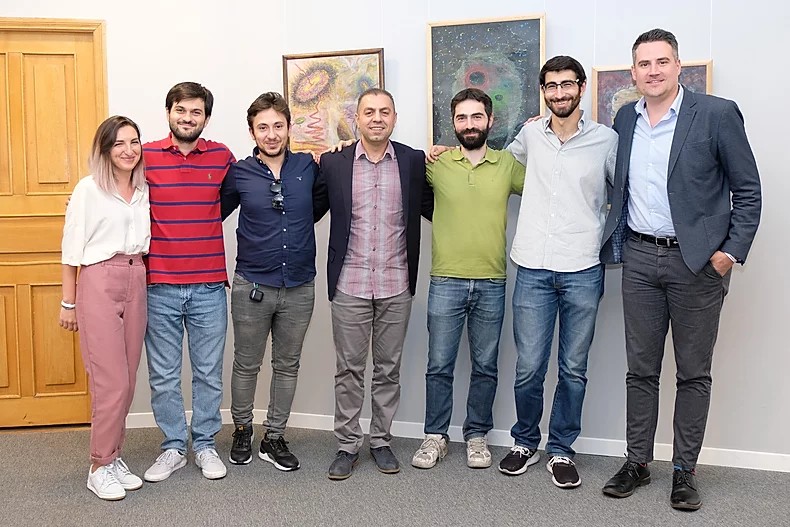
Hrach said, “I would say what made our friendship and united us was the different worlds in fiction— Lord of the Rings and the Game of Thrones are good examples. There was a passion in the four of us to make something that would be appealing for people like us.”
They all got their bachelor’s degrees in 2013, but are from different professional fields. Areg has an MBA now and teaches marketing at the American University in Armenia. Karen also has an MBA but is more involved in business management. ForgeFiction’s chief technology officer Gayane has a background in mathematics and spent years in different software development companies, including some larger ones in Armenia. Hrach defended his doctorate in experimental physics before switching to the ForgeFiction project.
Hrach said, “We came up with the idea in the spring of 2018.” The “Game of Thrones” show had two seasons left. There was a really large community of fans, Hrach recalled, creating amazing theories about how the story might continue and what different things in the story meant. In fact, Hrach said, “It actually turned out later that the show did not even come close to the things the community imagined.”




